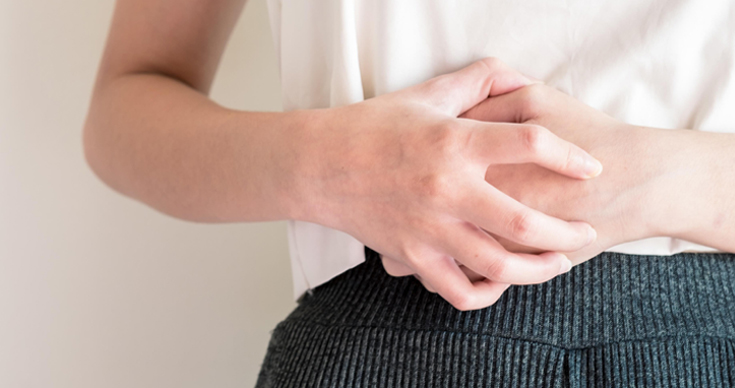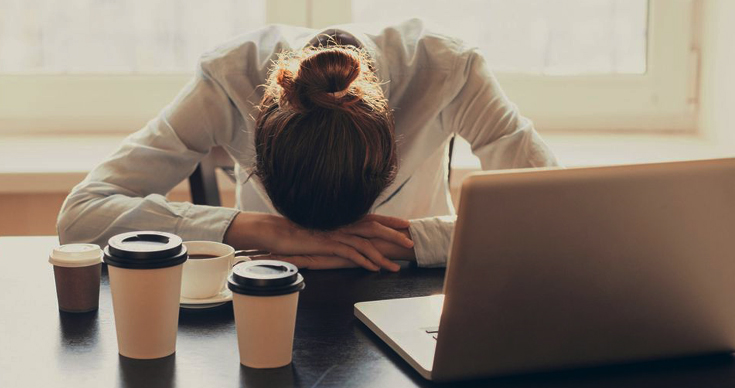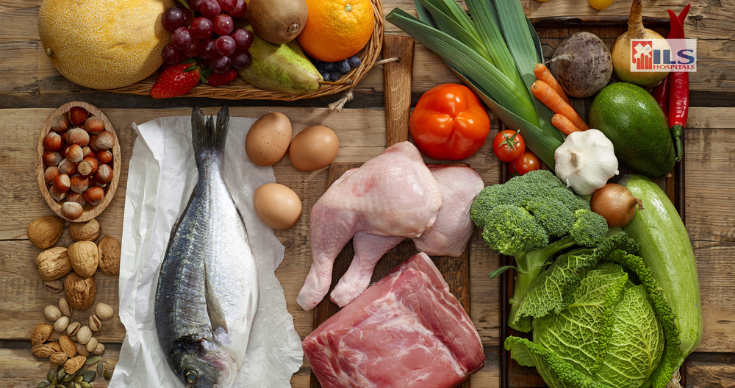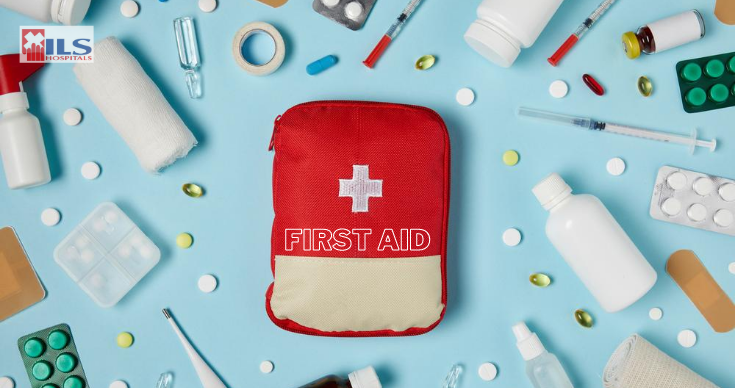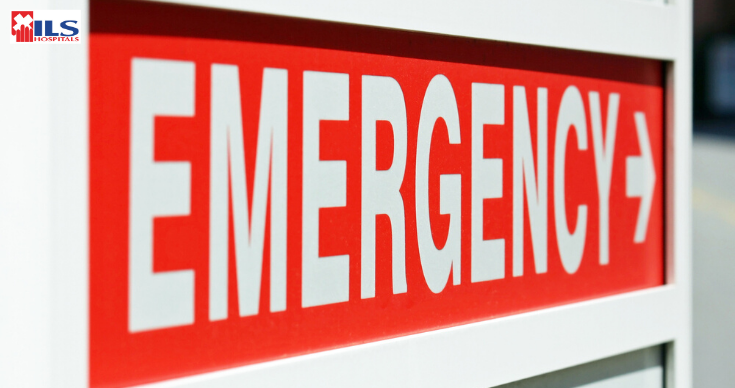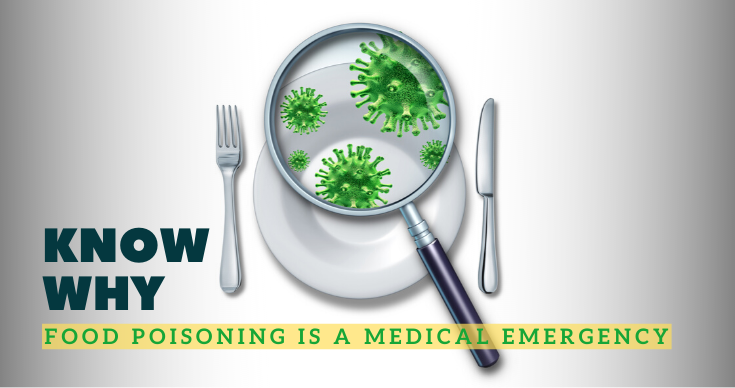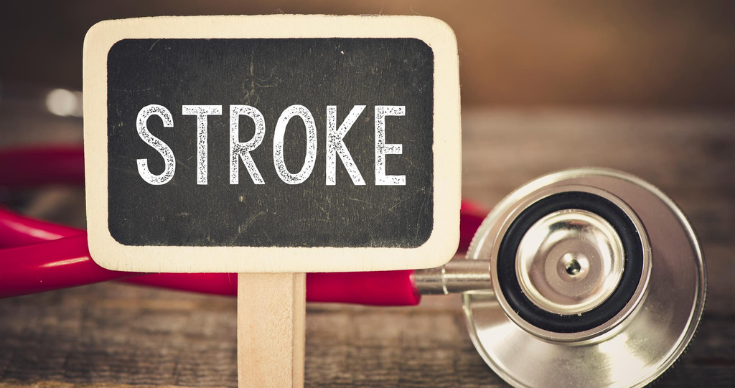Keeping Your Digestive Distress in Check
Gastrointestinal or Digestive Distress is caused, due to a variety of reasons, such as stomach flu, food poisoning, parasite infections, or cancer. The major symptom of digestive distress is food which includes caffeine, alcohol, carbonated beverages, fried food, or high-fat food. Typical symptoms of gastrointestinal distress may include abdominal pain, gas, cramps, heartburn, diarrhea, constipation, weight gain or loss, and fatigue. If you suffer from constant stomach problems and digestive issues, you might have digestive / gastrointestinal distress.
Digestive distress is usually caused by unhygienic food, stress, being physically inactive, intake of large amounts of dairy products, stomach infections, or a low fibrous diet.
What is the treatment?
When it comes to treatment, one size doesn’t fill all. So, we combine various treatment options in creating a personalized treatment approach.
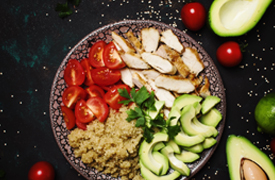
- Healthy diet – A healthy diet keeps your immune system strong and prevents other diseases too. A healthy diet should include a low-lactose diet – deprived of dairy products and should consist of a high-fiber diet – fiber can positively affect constipation and other stomach problems.
- Avoid Fatty Food – You can avoid consuming fatty and oily foods and aerated beverages if you are suffering from heartburn. You can take lactase supplements, simethicone and probiotics.
- Probiotic supplement – probiotics are efficient for digestive disorders. These microorganisms help to improve intestinal health and in turn reduces digestive distress.
Some of the best foods to improve digestion are yoghurt, chia seeds, ginger, fruits, whole grains, dark green vegetables, peppermint, and salmon. And some unhealthy food that you should avoid for the sake of intestinal health. For example, high in fats include cheese, carbonated beverages, alcohol and milk and white chocolates.
The best ways to improve your digestive system
- Manage your stress – Stress hormones directly affect your digestion. Yoga and meditation help to improve not only your mindset but also your digestion.
- Stay Hydrated – Doctors recommend drinking 1.5-2 litre of water per day to prevent constipation.
- Fibrous Food – Eating enough fibers helps prevent digestion problems. It’s naturally available in fruits, green vegetables, beans and whole grains.
- Intake of Zinc – Zinc is a mineral that is critical for a healthy gut, and a deficiency can lead to various digestive disorders. Experts recommend that daily intake for zinc is 8mg for women and 11 mg for men.
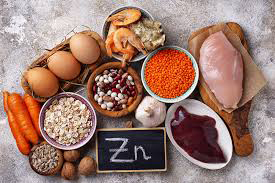
Some nutrients are necessary for a healthy digestive system. Ensuring that your body gets enough probiotics, glutamine, and zinc may improve your digestion.
The digestive system plays an important role in our immune system. In our stomach, there are a large number of immune cells which give us 70% of our immunity. There is also a complicated balance of good and bad bacteria that give us a healthy immune system.
At ILS Hospitals, the gastroenterology department addresses all illnesses related to digestive problems. Some of the major organs along with several illnesses include oral diseases, gastric disease, intestinal disease, rectum and anus.
To book an appointment or for any other queries, call ILS Care +91 90514 60000 or visit www.ilshospitals.com
Insomnia or sleep-deprivation? Find out
The essence of a healthy lifestyle revolves around eating right and staying physically active.
But in hindsight, people usually tend to discard a sound sleeping schedule, body’s biological clock. According to the National Sleep Foundation (NSF), sleep is extremely essential for our health and wellbeing. Several individuals tend to not get enough sleep and end up suffering from multiple sleep disorders and most of them, go undiagnosed.
Various factors in our day-to-day lifestyle result in detrimental changes in our body and mind and irregular sleep is one of them.
The two types of Sleep:

REM Sleep or Rapid eye movement sleep is a phase that is characterised by random rapid movement of the eyes, accompanied by low muscle tone throughout the body. It is also marked by the ability to dream vividly. It is the state in which restoration of our brain and body functions occurs, including energy conservation and memory consolidation.
Non–REM sleep is marked by 3 phases of sleep that progressively deepens from light sleep, to restful sleep and ultimately, deep sleep.
Here are the three phases in the sleep cycle and REM phase described.
- Phase 1: The duration between being awake and asleep.
- Phase 2: In this phase, our brain waves slow down, body temperature drops and breathing and heart rate become more regular.
- Phase 3: The final and third phase is the deep sleep – our body muscles are relaxed, blood pressure and breathing rate drops. Sleepwalking, bedwetting and nightmares occur during this phase.
- REM Phase: This phase occurs about 90 minutes after we fall asleep, and is the dreaming stage of sleep. During this phase, the brain becomes more active and the body becomes relaxed and immobilised.
Let’s list down a few important issues to be known when there’s lack of sleep
Affects mental health: Sleep plays an important role in thinking and learning. Due to lack of sleep, a human brain can’t function 24/7 without giving it any rest. This eventually affects your mental health and results in fatigue and frustration.
Affects the immune system tremendously: It is said that sleep helps build up an effective immune system. Thus, lack of sleep can prove to be a barrier for your immune system and might eventually make you feel weak.

Affects the overall functioning: Sleep deprivation can lead to severe health issues including heart disease, high blood pressure, diabetes, irregular heartbeat and more.
Causes headaches: Several sleep disturbances like oversleeping, lack of sleep, or a change in your sleep routine often results in a severe headache, which can lead to other ailments.
How can you avoid Sleep Deprivation?
- Avoid caffeine later than early evening
- Take a power nap to boost your energy
- Follow your proper sleep cycle
- Maintain your room temperature and bed hygiene
- Meditate for 20 minutes before bedtime
- Listen to soft music before bed
- Don’t use electronic gadgets 2 hours before bedtime
- Keep your Cortisol in check
- Sleep on good quality bed accessories
- Say NO to smoking, especially at night
The best way to control sleep deprivation is with the right mindset. If you are facing a sleep disorder, keep a check on your sleeping habits by maintaining a sleep diary. Consult our Neurology department or our Pulmonology department, which addresses issues related to sleep disorders. A pulmonologist treats lung diseases and breathing problems associated with sleeping disorders. In case of any emergency, you can contact or visit ILS Hospitals, a multispeciality hospital, known for its excellent healthcare services.
To book an appointment or for any other queries, call ILS Care +91 9051460000 or visit www.ilshospitals.com
Food Habits To Be Followed Post Angioplasty
Your diet after angioplasty needs to be paid extra attention for quick recovery. If you have an angioplasty, you need to make certain changes to your diet and lifestyle.
(Get cardiac emergency care from the best medical emergency centre in Kolkata)
Today, ILS Hospitals, one of the best hospitals in Kolkata and Agartala will tell you what you can and cannot consume after an angioplasty procedure.
Include,
Lots of fruits and vegetables
Now is the perfect time to consume plenty of fruits and vegetables to recover faster. Eat fruit and vegetable salads or preferably boiled and mashed fruits and vegetables after angioplasty to get the ultimate nutrition.
Healthy fluids
Ensure that you drink healthy fluids throughout the day. Apart from plain water, you can drink healthy vegetable and chicken soups, fruits and vegetable juices, and coconut water to receive sufficient hydration.
Whole grains
Consume whole grains, like brown rice, oats, buckwheat, quinoa, barley, and so on.
Lean meat
Instead of red meat, opt for leaner options of meat, like fish, chicken, turkey, etc.
Legumes and lentils
Make sure that your diet post angioplasty contains vital legumes, such as chickpeas, kidney beans, black-eyed peas, soybeans, and lentils.
Nuts and seeds
You should not forget the importance of wholesome nuts and seeds after angioplasty. Eat soaked and peeled almonds, cashews, peanuts, pecans to get the goodness of nuts. Do consume seeds of sunflower, pumpkin, and sesame if possible.
Exclude,
Sugary foods
Avoid sugar and sugary foods, that includes sweets, desserts, and chocolates. If avoiding is not entirely possible then try to reduce its intake.
Fried and fatty foods
Fried and fatty foods need to be strictly avoided post stent procedure. Tell the one who is preparing your food to use less oil in your meals.
Spicy foods
Avoid excessive spices and chillies in your meals as consuming such things can interfere with your medications and hence recovery.
Alcoholic beverages
Alcohol or alcoholic beverages must not be consumed after angioplasty.
For a speedy recovery post angioplasty, follow the above-mentioned things, take plenty of rest, have your medicines on time, and follow up with your cardiologist. If you are searching for a hospital in Kolkata and Agartala for your angioplasty procedure, consider the name of ILS Hospitals. Our hospital units in Kolkata and Agartala are well-equipped with the latest technology, facilities, and expert medical professionals who will guide you throughout the procedure.
Medical Emergency: Things Paramount To Your First Aid Kit
First Aid Kit is something that should have its place in every house, office, restaurant, shop, and vehicle. You never know when a medical emergency might happen, so it’s always good to be prepared beforehand.
In today’s blog, ILS Hospitals, one of the best multispeciality hospitals in Kolkata and Agartala will enlighten you on First Aid Box essentials. Let’s take a look at things that must be inside your First Aid Kit.
Adhesive bandages
Adhesive bandages or conveniently called “band-aids” must be kept inside your First Aid Kit. Band-aids are commonly applied on common cuts to protect them from infection so that they don’t interfere with the healing process.
Antiseptic liquid
An antiseptic liquid needs to be there as it is used for removing germs from your wounds that might lead to infections if not cleaned properly.
Antiseptic cream/ointment
Keep a good antiseptic cream or ointment inside your First Aid Box so that you can apply one whenever you hurt yourself. Remember to always apply an antiseptic ointment after cleaning your wounds with a disinfectant or antiseptic liquid.
Medical cotton wool
It’s very obvious to keep medical cotton wool as you’ll need them to use on wounds as well as,while applying antiseptic liquid and ointment.
Medicated pain relief spray
Medicated pain relief spray is a must.You never know when you might get a sprain or backache.
Ice Pack
You should keep an Ice pack as it is very useful to minimize swelling post-injury.
Doctor’s approved pain relief medicines
Sometimes, taking medicines is the only option. In that case, always keep pain relief medicines after getting the medical professional’s nod.
Prescription medicines
If you have a specific health condition that requires you to take prescriptive medicines, then you can keep them inside your First Aid Box.
Antacids
Antacids are taken when one suffers from indigestion. Antacids neutralize the stomach acid and can be in any form – tablets or liquids. You can ask a medical professional to prescribe you some good antacids.
Decongestant
Seasonal changes can give you cough and cold. Nobody likes to deal with a runny nose and sore throat. That’s when decongestants come to the rescue. Surely, keep a good one.
Headache Roll-on/Balm
Headaches have become extremely normal in today’s hectic world. A headache roll-on or balm should be a part of your Medical Box. If you have migraine then consult your doctor to prescribe you an effective headache roll-on.
Sanitary napkins
Sometimes you or someone you know might get periods all of a sudden. So, it is crucial to keep sanitary napkins inside a First Aid Kit.
Hand sanitizer
A medical emergency can occur at any given moment and you may not get the chance to wash your hands before treating yourself or someone who needs First-Aid. That’s why you will have to keep an alcohol-infused hand sanitizer.
Thermometer
Keeping a thermometer is a smart choice. Nowadays, digital and no-contact infrared thermometers have come into prevalence.
Ensure there are no expired products inside your First Aid Box. For severe burns and other major injuries, First-Aid is not the ultimate cure. You have to report to the hospital’s ER in case of a serious medical emergency. Visit ILS Hospitals – Kolkata and Agartala for any medical emergency. Our ERs are well-equipped with the latest infrastructure and we provide 24*7 Emergency Care to our emergency patients in Kolkata and Agartala.
How To Handle A Medical Emergency Effectively
A medical emergency is a serious condition that requires immediate medical supervision or else it can cause serious harm or injury to the affected person. Few examples of a medical emergency are burns, poisoning, injuries, bleeding, shock, strokes, severe allergic reactions and so on.
Not everyone knows what to do in case of a medical emergency, so ILS Hospitals, one of the best hospitals in Agartala and Kolkata will tell you how to handle a medical emergency effectively.
So without adding anything else, let’s continue further.
Stay Calm And Composed
Medical emergency is an alarming situation and can make people anxious. First and foremost thing to do during a medical emergency is to have a calm and composed demeanour until help arrives. Take deep breaths to calm your nerves and get relief from anxiety.
Call Medical Emergency Services At Once
Help takes time to arrive. So, whenever you notice someone in need of urgent medical supervision, call your local hospital for an ambulance without any delay.
Always Carry A First Aid Kit
First aid kit should be inside every home, school, college, office and any other organisations. You should even keep a small medical toolbox inside your car and backpack. Provide first aid to the patient to avoid any further damage.
Give CPR To The Patient
If the patient does not breathe despite a pulse then perform a CPR (Cardio-Pulmonary Resuscitation) or tell someone else to perform one if you do not know the CPR procedure. Ensure that the patient’s airway is not restricted by removing the patient’s tight clothing. Remember, it’s an emergency so you need to do things as required.
Always help people in need of medical emergencies whether you know them or not. For any medical emergency, you can visit ILS Hospitals, one of the best hospitals in Kolkata and Agartala.
What Is Food Poisoning? Is Food Poisoning A Medical Emergency?
Food nourishes our body but sometimes it can even become poisonous due to the presence of dangerous bacteria, parasites and viruses like Salmonella, E.Coli, Listeria, Trichinella, Toxoplasma, and Norovirus. Food poisoning is a common gastrointestinal condition caused by the consumption of infected or contaminated food. If left ignored, it can even become a medical emergency.
Today, ILS Hospitals would like to discuss food poisoning in brief. So, read this blog to understand more about this unpleasant medical condition.
Symptoms
There are always tell-tale symptoms of any medical condition. The symptoms of food poisoning are mentioned below:
-
Nausea and vomiting
-
Diarrhoea
-
Poor appetite
-
Abdominal cramps
-
Fever and chills.
Immediately rush to the hospital’s ER if the above symptoms persist for more than three days and when you notice severe symptoms as shown below:
-
Dehydrated body (dry mouth and no urine)
-
Blood in vomit, stool or urine
-
Dizziness and weakness
-
High fever
-
Hazy vision
-
Muscle cramps
-
Severe weakness.
Causes
Apart from certain bacteria, parasites and viruses, are there any other causes for food poisoning? Yes, the following can also cause food poisoning.
-
Eating raw or undercooked eggs, fish, chicken and other meats
-
Eating uncleaned or not properly washed fruits
-
Consuming raw and imperfectly cooked vegetables and leafy greens like cabbage, spinach, tomatoes, cauliflower, mustard greens etc.
-
Preparing food without maintaining any hygiene
-
Drinking unpasteurized milk and consuming its products
-
Having improperly stored food.
Diagnosis
The doctor will diagnose your food poisoning through physical exams and by keeping note of your medical history and present condition. In the case of food poisoning, you’ll be prescribed these primary diagnostic tests by the medical practitioner:
– Samples of the eaten food
– Blood test
– Stool test.
Treatment
Mostly, food poisoning cases solve on their own by doing the following things:
-
Sipping plenty of fluids and oral rehydration solution (ORS)
-
Eating a bland and nutritious diet
-
Avoiding spicy, fatty and oily foods
-
Eating lighter meals
-
Consuming vegetable soups and fruit juices
-
Avoiding dairy and dairy products
-
Taking plenty of rest
-
Having medicines prescribed by the medical professional.
If the condition still doesn’t get better, then it might indicate a serious medical condition. Food poisoning is surely a medical emergency if it lasts for many days and the symptoms get worse. So, always eat fresh, clean and properly cooked food. Also, ensure that the food is prepared by freshly washed hands. Come to ILS Hospitals in Kolkata or Agartala for any medical help.
All You Need To Know About Stroke
A medical emergency can happen any day, any time, with or without any warning signs. The most common medical emergencies in Kolkata are a heart attack, stroke, cardiac arrest and road accidents. Often people assume heart attack and stroke to be the same thing, but they are not. Let’s understand some crucial aspects of stroke in brief.
What Is a Stroke?
Stroke is a medical emergency which occurs when blood flow to the brain stops and as a result, the brain cells begin to die. A heart attack is a similar medical emergency in which the supply of blood to the heart stops.
There are 3 kinds of stroke, namely
- Ischemic Stroke – When an artery is blocked
- Hemorrhagic Stroke – When a blood vessel is ruptured
- Mini Stroke (Transient Ischemic Attack) – When a blood vessel is damaged temporarily
Though a mini-stroke doesn’t have any long term effect on health for most people, some patients are left with some disability for life. A mini-stroke also uplifts the risks of having a stroke in the future, significantly.
What Are The Symptoms Of A Stroke?
As already mentioned, stroke is a medical emergency and during stroke every second count. Thus it is crucial to be able to identify stroke on time. But identifying stroke can be challenging for people in general. In this regard, we all should be aware of a simple acronym FAST. So, if you suspect anyone to have a stroke, check the following.
- Face Dropping – Ask them to smile to check the facial muscles. If you observe one side of the face to be dropping or if the smile appears to be uneven, it might indicate a stroke.
- Arm Weakness – Ask them to lift both arms and see if they can. Also, check if they complain of numbness in one arm.
- Speech Difficulty – Ask them to check how they respond and see if their speech seems slur or abnormal or if they are able to understand your command.
- Time To Call Ambulance – If any of the above-mentioned symptoms are present, don’t hesitate and call the ambulance immediately.
Apart from these obvious symptoms of a stroke, there are few other minor symptoms as well. These include-
- Severe, sudden headaches
- Blurry vision or difficulty focusing on one/both eyes
- Paralysis/numbness/weakness in body part/s
- Trouble walking or loss of balance
- Dizziness or confusion
- Loss of memory
- Muscle stiffness
- Involuntary eye movement
So, always remember, ‘if you suspect a stroke, then be FAST’. If you are not entirely sure, get it addressed at the nearby healthcare provider. Treatment on the right time will reduce the risk of disability or even death.
The symptoms of stroke may vary depending upon severity. On one hand mild stroke might have a temporary weakness; on the other hand, any sever stroke can end up causing permanent paralysis.
ILS Hospitals is all set to offer accurate diagnostics and prompt treatment for stroke and other medical emergencies. Our expert doctor and paramedic team monitor the patient round the clock, on our ICUs. For more information, visit us.
Angioplasty in Nutshell – What it is and Where Should you Avail it?
The heart is a muscular organ that acts as a pumping device for the circulation of blood in the body, along with the other elements of the circulatory system. Many times, some complications lead to a cardiac emergency and a timely action of good hospitals can deal with it effectively. To avoid such mishaps, it is always recommended to seek routine consultations, screenings, and treatment from a descent cardiologist, from time to time.
Let’s understand about a very special cardiological procedure, the angioplasty, in details.
What Is Angioplasty?
Angioplasty is a non-invasive procedure, used to unclog the blocked or narrowed blood vessels and ensure the blood flow in the circulatory system stays effective.
Why And When Angioplasty Is Needed?
At first, let’s understand the working function of the heart in a nutshell. The coronary arteries pump oxygenated blood first to the heart and then throughout the body, while the veins collect the deoxygenated blood back to the heart and then to the lungs. It seems like a pretty simple procedure, but the double-circulation system is quite complex in structure.
Because of high cholesterol and other medical conditions, prolonged plaque built up, which in turn narrows or blocks the blood vessels entirely. As a result, the heart either gets the blood supply at a much slower rate or none at all. If left untreated, the plaque built up hardens and can lead to cardiac cell damage, triggering a heart attack. A timely Angioplasty is required to unclog the blocked blood vessels and to restore the heart’s function.
How Is Angioplasty Carried Out?

Angioplasty is a non-invasive procedure, but a clear explanation is required to understand it correctly. The angioplasty uses a thin, tube-like structure to unclog the plaque build up in the blood vessels. The procedure is minutely surgical in nature, as the probe is inserted like a needle, through a suitable blood vessel (wrist or leg). It is then moved gradually towards the clogged blood vessel and with little force, the blood vessels are cleared.
Even though it involves piercing the needles, it is rightly referred to as non-invasive, as it involves no piercing of the blood vessel of the heart directly.
Where Should You Consider Getting An Angioplasty?
Angioplasty required specialized skills and advanced medical technology to be safe and effective. It can only be done in hospitals or diagnostic center that offers catheterization laboratory (cath labs) facility. At ILS Hospitals, we offer advanced cath labs along with other diagnostics services. For more information, get in touch with http://ilshospitals.com/hospital-locations.php?location=dumdum
Health Tips To Stay Healthy This Durga Puja Festive Season
Durga Puja – the festival that brings us closer to our family and friends. Amidst these overwhelming seasonal spirit, often we let our guards down and fall in tarps to several health complications. ILS Hospitals lists out some of the health issues related to festive-season and offers some tips and precautions to stay healthy.
1. As we are going through a confused climate, it is uncertain to say whether or not it will be raining in between Puja season. So, take every precaution you should during this time. Also, while pandal hopping, don’t forget to use the mosquito repellent.
2. Despite the prevailing monsoon, the intense sunlight, during the day with clear sky, can cause severe dehydration and sunburn if proper measures are not taken. So don’t forget to carry your umbrella during your day voyages and apply your sunscreen cream as well.
3. You should also be very particular about the food and drinks you feast upon outdoors, with your friends and family. Practice extra caution while going for the Fast food items like Noodles, Rolls and Pani Puri from street vendors.
4. Carrying and consuming bottled water is highly advised. Unpackaged water can be contaminated and thereby can lead to Diarrhoea, Typhoid, Food Poisoning, and Hepatitis.
5. Being in crowded places can cause spreading of several contagious illnesses such as cold, cough, flu and viral infections. Stay on guard while being with crowds in pandals and never-ending queue leading towards the same.
6. Pandal hopping for hours, regardless, of day or night is tiresome. Adequate rest is extremely necessary for you. So, even if you are extremely busy having fun, take out atleast 6 hours each day for sleep. Staying awake all night long is particularly not advised for elderly people and children.
7. Over excitement and enjoyment without caution can also lead towards mild to major injury. So keep a leash on the same and make health and safety your first priority.
8. If you already have any medical discomfort, you should be extra careful. For eg., if you have diabetes, you should keep taking your medicine without a miss and in case you have asthma and respiratory discomfort, it is best to plan your visit to avoid crowds as it might trigger an attack.
So, follow these simple precautionary tips and reap the best of this festive season. Also, take note that ILS Hospitals is all set and functional during the entire puja season. So come down at ILS Hospitals to address any medical emergency or discomfort that you encounter.
When To Seek Medical Treatment For Food Poisoning
Are you feeling severe stomach cramps with nausea and vomiting? Are you rushing to the washroom every 2 minutes? Did you have something for dinner or even lunch or breakfast which could be contaminated? Could be, that you are suffering from food poisoning. It might sound funny to many individuals, but severe food poisoning is also considered as a medical emergency. The word ‘medical emergency’ casts impressions of – elderly man being carried in an ambulance due to heart attack or a punk youth taken to the ER due to road accidents, but it is a much broader scope.
Read more – Symptoms of Cardiac Emergency
It is true that you can treat minor to mild food poisoning with home remedies, adequate rest and over the counter drugs, but you need immediate medical attention to address if it is severe.
Food poisoning is a foodborne condition which occurs when you consume contaminated food or water. The severity and symptoms vary depending upon your immunity, strength and the pathogen you got infected with. Usually, it starts within a few hours after you eat the contaminated food, but it can also take a few days to weeks in some cases. The symptoms you will usually feel are nausea, vomiting, fever, fatigue, dehydration, dry mouth, lose motion etc.
However, in case you have symptoms such as feeling disoriented, dizziness, low blood pressure, high fever with chills, palpitations, breathing trouble, severe vomiting/diarrhoea, hazy vision, blood in vomit or stool, loss of urination, dark-coloured urine along with severe cramps, then you are going through severe food poisoning. If it is not addressed timely, it may cause a life-threatening crisis such as severe dehydration or even an organ damage.
After your preliminary check-up, your doctor will determine the exact treatment approach. Ideally, you will have to receive IV fluids and electrolytes along with antibiotics to boost your body functions. Moreover, the doctors will keep a close eye on the condition of the body temperature, blood pressure, kidney and nerve functions.
Needless to say, a timely cure will ensure proper recovery with no long-term complications. So, if you or any of your loved one is showing symptoms of the same, get in touch with our ER team and ensure your health and recovery.
The cases of food poisoning are quite common during the monsoon. You are hereby, recommended to avoid untreated water, unwashed food, raw or poorly cooked food, pre-cut fruits/vegetables, roadside food etc, particularly during monsoon.











